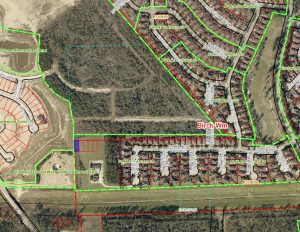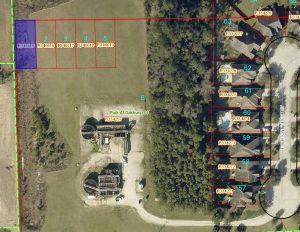There’s a lot of dirty business that takes place with Municipal Utility Districts (better known as MUD districts). The Houston Chronicle recently reported on the power these districts have to levy taxes, sell bonds and make home-owners lives miserable.
Now there is a decent argument to be made on why MUD districts are needed. They provide valuable infrastructure to communities that are unincorporated and help in the development of new neighborhoods. That being said, citizens might be better served if some of the rules governing them were changed.
For example, I live in Montgomery County Mud District #84. Recently residents became concerned because the bills they were receiving were much higher than normal. One homeowner posted on NextDoor.com that their Aug. 2016 water bill was $363 with the sprinklers turned off (bills usually run between $80 – $110 during summer months).
Obviously, that kind of increase causes people to ask questions. One resident did some research and discovered that none of the board members lived in Montgomery County. So how could they serve you ask? Because each board member owns exactly .1148 acre, which according to chapter 54 of the Water Code, allows them to sit on the board and make decisions.
Satellite images of where the properties owned by the board members are located show what looks to be a carefully thought out and pre-arraigned agreement. The property sits right next to the water plant, all tucked together in nice and neat parcels. Can you say buddy-buddy?
Now to be clear and fair, this is not illegal and is actually a common practice. Developers need to issue bonds before construction begins (who wants to move into a neighborhood with no water or sewer system), but there are some steps that can be taken. One, require a board member to actually live in the county for one full year. Setting up little plots of land for people to buy so they can be on the board just does not pass the smell test, even if it is totally innocent.
Another step is for board members to be more visible. Want to ask them a question? Good luck with that. Home owners are required to turn into super-sleuths to uncover their identities, let alone get in touch with one. I’m sure that as in any public (or in this case, semi-public office), it can be a thankless job, but there has to be something appealing to be on the board, or why would anyone do it in the first place?
MUD districts like Montgomery MUD #84 hire companies like Wheeler & Associates to handle the tax and collection services and Municipal District Services to collect bills. Both website offers lots of information on tax rates and how to pay bills, but try to find information on board members. And, don’t bother looking at the Home Owners Association website, you find anything there either. No you need to contact Schwartz, Page, & Harding (legal representation for MUD 84) regarding the identities of the MUD 84 board.
Again, no one disputes the need for MUD districts, they serve a very important function, but could we have some level of accountability and/or transparency?


